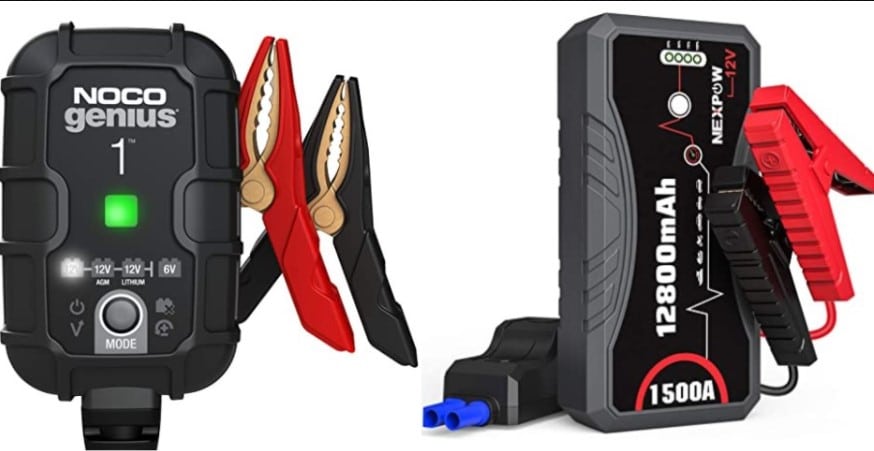There are many types of batteries for cars. According to the car model and specific energy, exact batteries were used.
Now, if you have owned a car and are thinking about getting the right battery for your car, here is the answer.
In this article, you will know which battery is right for which model.
Well, to get an idea about different types of batteries for your car, read the information stated below.
Suggested Reading
Can I use a lipo battery with a brushed motor
What Wireless Earbuds Have The Longest Battery Life
Different Types Of Batteries For Your Car
Given below are some most common batteries which were available in the market.
Calcium Batteries
Calcium batteries is a lead-acid battery that carries calcium components on both positive and negative plates. Instead of antimony, they use a lead. That’s why these batteries are low maintenance. They are commonly available and inexpensive.
The calcium batteries are easily rechargeable. Most of the calcium batteries don’t have a higher charge voltage but still work as a function of standard antimony batteries. But, if your car is for an antimony battery, the calcium battery will not give a 100% state of charge. So, a calcium battery is better to use for electric vehicles.
However, calcium batteries are 100% maintenance-free. After buying, you will not need to pay additional costs. Moreover, they work for a long period. So, calcium batteries are great for the money.
Deep Cycle Battery
Deep cycle batteries are one of the lead batteries as calcium batteries. The difference is, they are designed to offer more capacity when used.
Most people prefer deep cycle batteries because of their better performance than other cells. They occur in short high current bursts when the battery cranks. Their plates are thicker than regular batteries.
The most benefit of using a deep cycle is, you can discharge by 80% from time to time. When buying a deep cycle, ensure the plate is a solid lead and not a replica one.
Wet Cell Batteries
Wet cell batteries are a combination of lead, sulfuric acid, and water. This combination creates an electrolyte battery. They are cheaper. You can use this battery for your needs.
However, by the time, wet cell batteries have lost traction. Now, most electric and hybrid vehicles don’t use wet cell batteries. For more energy-efficient, you will need more convenience.
AGM Batteries
AGM batteries come with a high level of convenience. They are the most commonly used by people. For getting higher CCA & RC, they are in demand. The batteries are just like flooded lead-acid batteries. The difference is, there is no excess electrolyte in AGM. That’s why they can operate in any situation. You won’t need to worry about spillage.
The AGM batteries are designed by valve-regulated lead-acid. So, they run higher than atmospheric internal pressure. The pressure is controlled by an inbuilt valve regulator.
When batteries are installed internally, a vent tube must be connected outside the vehicle. One thing to be noted is, AGM batteries are heavier than wet cell batteries. So, you need extra care when lifting and installing.
EFB Battery
EFB stands for the enhanced flooded battery. This is the improved version of the wet cell battery. EFB batteries give better performance and durability compared to traditional cells. You can have huge energy efficiency and durability by using an EFB battery.
Compared to other batteries EFB battery is superior with up to 85000 maximum engine starts.
Final Verdict
So far, given the different types of batteries for your car. I hope, now you get an idea about the batteries and understand which would be better to use, for your car.
Not every car owner has a proper idea about batteries. If you are a novice, it’s common to not have an idea about car batteries.
However, after reading the article, you will find it easy to get the right battery for your car from the market.


Generic name Lasilix Faible 20mg free samples of priligy
Your comment is awaiting moderation.